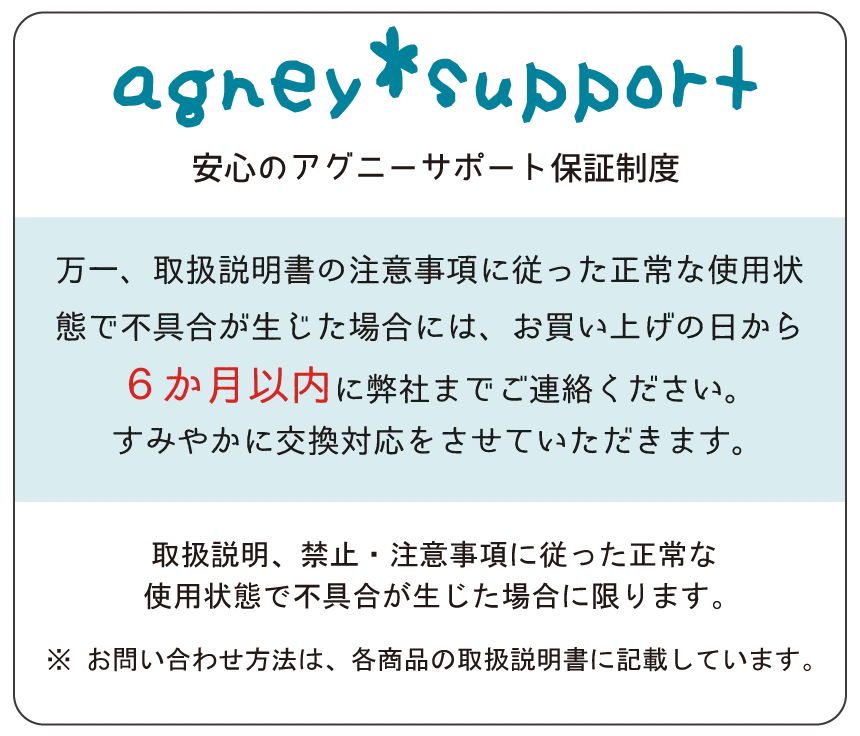They may stare enviously at the adults eating the food or drool...At around 5 to 6 months of age, your baby's interest in food will increase dramatically, and it may be time to start introducing solid foods.
Naturally, a baby's diet is different from an adult's diet. It is important to never force your baby to eat, and to prepare "baby food" that is suited to the baby's body. So how should you start weaning food? In this article, we will mainly explain "how to start weaning food".
■Why do we have to start feeding our baby solid food?
Weaning food literally means "food to wean your baby from breast milk or formula and move on to the next stage." However, weaning food also has the following very important roles:
- To supplement nutrients that are lacking in breast milk or formula alone
- To increase the desire to eat and interest in food
・To practice chewing (chewing helps develop the jaw)
・To gradually develop the digestive system and build a body that can digest a variety of foods
As such, because weaning food is related to both mental and physical development, the "time to start" is very important.
■When should I start and stop giving my baby solid food?

The Ministry of Health, Labor and Welfare's guidelines are between 5 and 6 months of age. Within this period, you should determine the "suitable time for each baby". This is because there are individual differences in the rate at which babies grow. It is important to keep in mind that "not all babies start weaning at the same time". Even if two siblings are from the same family, and even if they appear to be at the same growth rate, there will be differences in the timing and method of starting weaning. So how do you determine the appropriate time to start weaning? Generally, if you notice the following symptoms in your baby, it is a good sign to start weaning.
[Signs that it's time to start weaning]
・The skeleton and muscles have grown to the point where the baby can sit upright.
- Drooling when watching adults eat
・They seem to want the food that adults are eating.
・When you give your baby a spoon for baby food, he or she tries to put it in their mouth
・He doesn't mind having a baby food spoon in his mouth
Incidentally, in the past, there was a view that "it is better to use fruit juice or soup before weaning your baby to get them used to flavors other than breast milk or formula." However, recently, due to the risk of "prone to allergies," the mainstream view is that "it is better to avoid fruit juice and soup before weaning."
■ The time and amount of weaning food changes depending on the stage
Baby food needs to change according to the baby's growth, because the baby's digestive system gradually develops and the number of foods he or she can eat increases.
Early stage (around 5-6 months)
The recommended meal is once a day. This is a meal that allows you to "practice swallowing" without difficulty.
Mid-stage (7-8 months)
The recommended amount is two meals a day. This is a meal that allows children to practice moving their mouths and crushing food without difficulty.
Late stage (9 to 11 months)
The recommended amount is three times a day. This is a meal that allows children to "practice chewing food using their gums."
Completion stage (around 12 to 18 months)
The guideline is three times a day. Depending on the situation, add one or two snacks.
As your child grows, it is important to gradually bring the frequency and food intake closer to "adult meals."
■ Summary
Let me summarize what we have discussed so far.
1. Weaning food is necessary for a baby’s mental and physical development.
It supplements the nutrients that are lacking in breast milk or formula and helps babies practice eating.
2. The best time to start is between 5 and 6 months of age, but this varies from person to person.
When deciding when to start, it is important to assess your baby's developmental level and interest in food.
3. The content and frequency of weaning food will change as the baby progresses through the early, middle, late and completion stages.
Families who prepare baby food will also need to proceed gradually while learning about baby growth and nutrition. Some babies have difficulty getting used to baby food, and things may not go as planned. Even in such cases, it is best to take your time and not rush into it.






